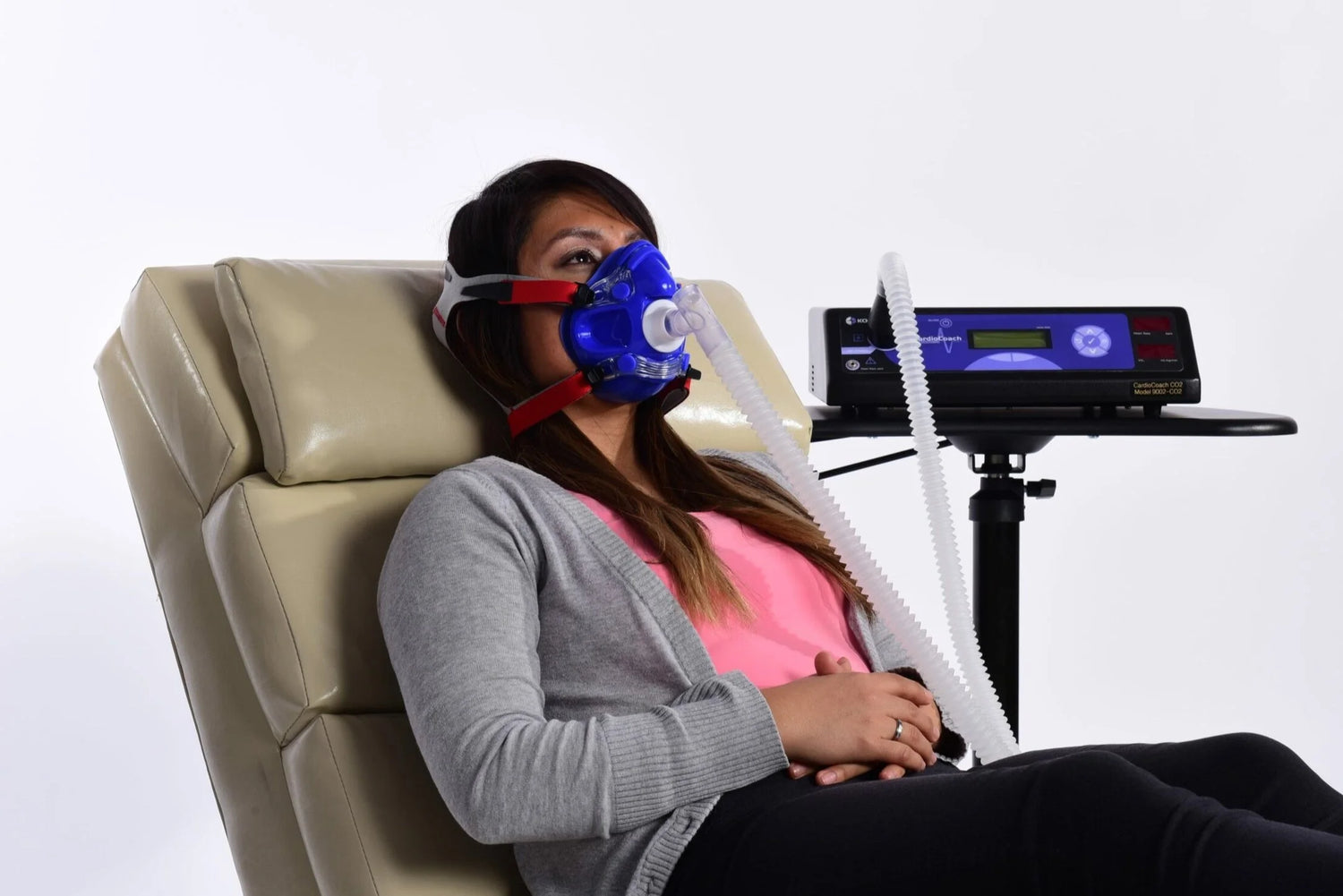Metabolic Testing - How does RMR come into play?
Metabolic testing is a type of health assessment that measures how your body converts food (calories) into energy. It evaluates your metabolism—specifically, how efficiently your body uses oxygen and burns calories at rest and during activity.
In clinical or fitness settings, metabolic testing often includes:
-Resting Metabolic Rate (RMR): Determines how many calories your body burns at rest.
-VO₂ Max / AMR Test: Measures your maximum oxygen uptake during exercise to assess cardiovascular fitness and endurance.
Together, these tests provide insight into your energy expenditure, metabolism efficiency, and overall metabolic health, helping guide personalized nutrition, fitness, and weight management plans.

Resting Metabolic Rate (RMR)
RMR testing is similar to AMR testing, but performed at rest. Testing includes monitoring your oxygen consumption for 10-20 minutes and measure your metabolic rate at rest to aid in diet & nutrition planning. These tests provide insight into what your metabolism is doing “for the 23 hours of the day you’re not working out” and thus are typically performed alongside a diet & nutrition consultation, and combined with a VO2 test to give you a full metabolic profile for all 24 hours of the day.*
FAQs About Resting Metabolic Rate (RMR) Testing
What is a Resting Metabolic Rate (RMR) test?
The RMR test measures the number of calories your body burns at rest to maintain basic functions like breathing, circulation, and cell production. This test helps determine your unique caloric needs for weight management.
Why should I get my RMR tested?
RMR testing provides personalized information about your metabolism, helping you create a more effective nutrition and exercise plan for weight loss, weight gain, or maintenance. It helps prevent under- or overeating based on your specific caloric requirements.
The test is non-invasive and simple. You'll sit or lie down in a relaxed state while breathing into a mouthpiece or wearing a mask for about 10-20 minutes. The machine analyzes your oxygen consumption to determine your RMR.
Do I need to prepare for the RMR test?
Yes, here are some general preparation tips:
- Avoid eating or drinking anything (except water) for 4-5 hours before the test.
- Avoid exercising for at least 12 hours before the test.
- Refrain from consuming caffeine and nicotine on the day of the test.
- Ensure you are well-rested, as lack of sleep can affect your results.
Yes, RMR testing is highly accurate when done correctly. The test is more reliable than using online calculators, which rely on averages that may not reflect your unique metabolism.
How long does the RMR test take?
The actual test takes about 10-20 minutes, but you should allow approximately 30 minutes for the entire process, including setup and explanation of the results.
After the test, you will receive a report detailing your RMR, which represents the number of calories your body burns at rest. A healthcare provider or nutritionist can help you interpret these results and create a personalized nutrition and exercise plan.
How often should I have my RMR tested?
It’s recommended to get your RMR tested every 6-12 months, or more frequently if you experience significant weight loss or gain, undergo major lifestyle changes, or start a new fitness or diet plan.
Yes, your RMR can change due to factors like age, weight loss or gain, muscle mass changes, and metabolic conditions. This is why periodic testing can help adjust your nutrition and fitness plans as needed.
Can RMR testing help with weight loss?
Yes, knowing your RMR can help you design an effective weight loss program by determining how many calories you should consume each day to create a calorie deficit without undernourishing your body.
Most people can take an RMR test, but it may not be suitable for individuals with certain respiratory conditions. Pregnant women and individuals on medications that affect metabolism should consult their doctor before the test.
Is RMR testing covered by insurance?
RMR testing may not be covered by insurance, but it depends on your provider and whether the test is deemed medically necessary. Check with your insurance company for details.
How much does an RMR test cost?
The cost varies depending on the provider and location, but the typical price ranges between $50 to $500 depending on what else is included in the appointment. Some DEXASCAN Affiliates may offer package deals with a DEXA scan purchase.
Can I take an RMR test if I’m on a special diet or have a medical condition?
Yes, but it’s important to inform your healthcare provider about any special diets, medications, or health conditions, as they may affect your metabolic rate and test results.
How does RMR testing differ from other metabolic tests?
RMR testing specifically measures the calories burned at rest, while other tests, like a VO2 max test, measure your metabolic rate during exercise. Both tests offer valuable insights but serve different purposes.
* Source: FOUR STAR ENDURANCE - Metabolic Testing & VO2Max

